|
|
||
|
||
|
Privacy Policy | Editorial Policy | Profit Policy | Join the Association | List of Members | Contact us | Index | Links |
||
|
Back Go to page: 1 2 3 4 5 6 7 8 9 10 11 12 13 14 15 16 17 18 19 20 Forward
|
||
|
Health and Life Style. |
||
| Veterans and Veterans Families Counselling Service (VVCS) can be reached 24 hours a day across Australia for crisis support and free and confidential counselling. Phone 1800 011 046. VVCS is a service founded by Vietnam veterans. |
||
|
Mozzy Bites.
Mosquito bites are the itchy bumps that appear after mosquitoes use their mouthparts to puncture your skin and feed on your blood. The bump usually clears up on its own in a few days but occasionally a mosquito bite can cause a large area of swelling, soreness and redness. This type of reaction, most common in children, is sometimes referred to as skeeter syndrome. Bites from Infected mosquitoes in many parts of the world can carry certain viruses or parasites and cause severe illness such as West Nile virus, yellow fever, malaria, dengue fever and some types of brain infection (encephalitis).
Mosquito bites are
caused by female mosquitoes feeding on your blood.
Mosquitoes select their victims by evaluating scent, exhaled carbon dioxide and the chemicals in a person's sweat which is why some people are more prone to being bitten than others.
For many of us, mozzie bites are an unavoidable part of life if we want the luxury of having our balcony door open on a summer’s night or sips at six around the barby. But apart from not scratching them, what’s the most effective way of minimising the itch? The key is in how our immune system responds to a mosquito bite in the first place. When you’re bitten, a mosquito will use its sharp, tubular proboscis to deliver saliva that’s full of anticoagulants to the blood, which thins it out for quick and easy siphoning. As researchers discovered back in 2012, these mouthparts are so small, they actually pierce individual blood cells and suck them dry.
The first ever time you get bitten by a mosquito you won’t feel a thing because your immune system hasn’t had a chance to develop a coordinated response. But once it does, it will know to deliver an unrelenting burst of histamines to the dried-up, shrunken blood cells, and these are what turns the bite wound into a red, swollen, and itchy disaster area. This is one of those cases where your immune system ends up causing more harm than good, so the best solution to combat a histamine-related itch is to douse it in antihistamines. Benadryl and calamine lotion are good. Calamine lotion and both Benadryl cream and the pills can be found over the counter and are pretty inexpensive. Benadryl pills can even be taken as a precaution beforehand, to deal with the inflammation as soon as you are bitten.
While antihistamines are the most widely accepted treatment for mosquito bites, there have been questions over just how effective they are. In 2012, a study published in the US Drug and Therapeutics Bulletin reviewed the available evidence for how over-the-counter treatments dealt with the itch of bug bites, and found "little direct evidence for the efficacy of treatments for simple insect bites, and, in general, recommendations for treatment are based on expert opinion and clinical experience." They added that with ointments containing antiseptics, antihistamines, or numbing agents such as lidocaine and benzocaine only appeared to help "sometimes". That said, "sometimes" is better than nothing, the researchers concluded, and having reviewed all available options, came to this recommendation: "For mild local reactions, the area should be cleaned and a cold compress applied. Oral analgesics can be given for pain, and a mild corticosteroid cream (such as Daktozin) applied to reduce inflammation and itching. Large local reactions can be treated with an oral antihistamine. Non-sedating antihistamines are preferred during the day, but a sedating antihistamine can be of use at night if sleep is disturbed. Antibacterial treatment is not required for simple insect bites, but secondary infections should be treated with an oral antibacterial agent in accordance with local guidelines."
Click the pic below to see the rather confronting footage of a mosquito's flexible proboscis probing a blood cell.
You’ll know you’ve been bitten by a mozzy when:
More-severe reactions may be experienced by children, adults not previously exposed to the type of mosquito that bit them, and people with immune system disorders. In these people, mosquito bites sometimes trigger:
Children are more likely to develop a severe reaction than are adults, because many adults have had mosquito bites throughout their lives and become desensitized.
If mosquito bites seem to be associated with more-serious warning signs, such as fever, headache, body aches and signs of infection — contact your doctor.
The best defence against Mozzy bites is, of cause, to go on the offensive.
Nothing shuts down a balmy summer BBQ or ruins the romance of an exotic tropical holiday quicker than an army of mosquitos out for blood. And then there's the dreaded experience of waking up in the middle of the night because the buzzing from a blood-sucking bug has roused you - it's somewhere out there, just waiting for you to fall asleep before it resumes its feeding frenzy.
A good mosquito repellent often means the difference between an enjoyable summer of outdoor fun and three nightmarish months in mozzie hell. But which one will do the best job of keeping you bite free? Repellents can be produced using synthetic chemicals or natural products and are available as aerosols, creams, pump sprays, wipes and wearable devices such as wrist bands. The concentration of the active ingredient in mosquito repellents determines how long it will protect you.
The most common active ingredients used are diethyltoluamide (DEET) and picaridin. Both DEET and picaridin are effective at preventing bites, but picaridin is odourless and so considered to be more pleasant to use. Plant-derived ingredients like melaleuca oil and citronella are also sometimes used and although natural repellent sprays and roll-ons are considered a safer alternative and do provide some protection, in most cases they're not as effective as chemical products that use DEET or picaridin. Despite its popularity, citronella has repeatedly been shown to be less effective than DEET.
Some companies also make wrist band mosquito repellents, which are a different story. When CHOICE tested mosquito repellents, the wrist band they looked at was relatively useless.
Generally, mosquito repellents are safe for adults and children over
three months of age. For bubs older than three months, look for
child-specific insect repellent or those that have a low
concentration of DEET or picaridin (less than 10%). Apply the
repellent evenly to all areas of exposed skin. A spray here and
there or applying repellent to your clothes or
Reapply frequently if you go swimming or sweat heavily.
Bushman has proven to be possibly the best repellent but any that contain DEET will prove to be effective.
Gimmicks such as traps, ultrasonic devices and smartphone apps all sound very appealing if you find that putting on repellent is a bit of a hassle, unfortunately, there is little scientific evidence that any of these will protect you from mosquito bites.
|
||
|
My dad worked for the Department of Main Roads for twenty years before he got fired for stealing! At first I didn't believe it.... But when I got home all the signs were there.
|
||
|
Are chicken eggs good or bad
for my cholesterol?
Chicken eggs are high in cholesterol, but the effect of egg consumption on blood cholesterol is minimal when compared with the effect of trans fats and saturated fats.
The risk of heart disease may be more closely tied to the foods that accompany the eggs in a traditional breakfast, such as the sodium in the bacon, sausages and ham, and the saturated fat or oils with trans fats used to fry the eggs and the hash browns. Most healthy people can eat up to seven eggs a week with no increase in their risk of heart disease. Some studies have shown that this level of egg consumption may actually prevent some types of strokes. But the story is different for people who have diabetes. In this ever-growing population, eating seven eggs a week significantly increases the risk of heart disease. According to the U.S. Department of Agriculture, one large egg has about 186 mg milligrams (mg) of cholesterol, all of which is found in the yolk. When deciding whether to include eggs in your diet, consider the recommended daily limits on cholesterol in your food:
|
||
|
He who laughs last thinks slowest.
|
||
|
Convinced You Need a Fitness Tracker? Think Again!
It
might be tempting to get one, now that the weather's warming and
you're spending more time outdoors. A Fitbit or an Apple Watch, for
instance, could prove useful if you're new to exercise or looking to
increase physical activity. They nudge you to keep moving throughout
the day and track workouts like running and cycling. Many devices
also measure heart rate and sleep. But if you're a procrastinator or
have trouble staying motivated, a tracker can easily end up in a
drawer. If you're already athletic or fairly stable in your routine,
it might
Counting Steps Fitness trackers typically use arm swings to gauge how far you've walked or run and push you to reach, say, 10,000 steps a day. Many also track floors climbed and calories burned. They can keep you on track if you're new to physical activity, if you're the type to go for a walk at 11 p.m. just to meet that daily goal. But a tracker won't do much if you keep telling yourself, "tomorrow."
Once you hit that goal consistently, you might be inclined to leave your tracker in a drawer, but if you're competitive, Fitbit and other companion phone apps will let you enlist peer pressure by joining groups that track, challenge and taunt each other to meet and exceed those arbitrary goals. Some devices, like the Apple Watch, will also step up your goals as you improve. Of course, this count isn't perfect. Trackers might give you bonus steps for doing the dishes or even punching someone, as they're measuring arm movements. A bike ride also won't reward you with steps, though some devices will credit you with calories burned.
Heart Beats Mid-range and higher-end trackers offer heart-rate monitoring, but these aren't approved medical devices. Measurements can vary wildly at times, but most readings are close enough to give you a general sense of your workout intensity. A higher heart rate means your workout is tougher, though heavy breathing and fatigue will also tell you that.
For Workouts These
devices are awful at translating steps to miles, and very few let
you calibrate your tracker by checking it against a known distance.
GPS in higher-end trackers help, but that
How's your Sleep? Most trackers also monitor sleep, though Apple and Android smartwatches require third-party apps. If you toss and turn a lot, the tracker will mark you as a light sleeper. If you get up to use the toilet, the tracker will note that, too. But is it useful? While a tracker might deem you a light sleeper, it can't guide you to better sleep. All it can do is recommend more sleep.
Do you have a Desk Job? Even if you meet step goals, prolonged sitting can be unhealthy, too. Many devices now have reminders to get up and walk around, though they're useless if you keep ignoring the prompts. Sometimes they even nag you while you're in bed — which is especially irritating if your tracker is also on your case about getting more sleep.
Your Phone Many key features are already available on phones. The iPhone has Health built-in for counting steps, while you can get Google Fit for Android. You can also download Moves for either system. Beyond steps, GPS apps such as Strava will track running and cycling workouts.
A tracker could still be a worthwhile investment for some people. The phone won't record sleep or remind you to take breaks, nor will it record steps when your phone sits on a desk. Microsoft's Band 2 adds a UV sensor to warn you when you need sunscreen, while the Samsung's Gear Fit2 can track squats and other strength training. The key is whether you'll use it. If you can't even motivate yourself with a phone, a tracker is just a waste of money.
|
||
|
A blonde lady motorist was about half an hour from the Gold Coast when she was flagged down by a man whose truck had broken down. The man walked up to the car and asked, “Are you going to Surfers?” “Sure,” answered the blonde, “do you need a lift?” “Not for me. I’ll be spending the next few hours fixing my truck. My problem is I’ve got two chimpanzees in the back that have to be taken to the Currumbin Zoo. They’re a bit stressed already so I don’t want to keep them on the road all day. Could you possibly take them to the zoo for me? I’ll give you $100 for your trouble.” “I’d be happy to,” said the blonde. So the two chimpanzees were ushered into the back seat of the blonde’s car and carefully strapped into their seat belts, and off they went.
Five hours later, the truck driver was driving through the heart of the Gold Coast when suddenly he was horrified! There was the blonde walking down the street, holding hands with the two chimps, much to the amusement of a big crowd. With a screech of brakes he pulled off the road and ran over to the blonde. “What are you doing here?” he demanded, “I gave you $100 to take these chimpanzees to Currumbin.” “Yes, I know you did,” said the blonde. “But we had money left over so now we’re going to Sea World.”
|
||
|
Staying connected.
Being and staying connected has never been easier thanks to the multitude of social media programs and apps that are now available. With so many available, what should you choose?
Well, the obvious choice for many and used by almost 13 million Australians is Facebook. When you think that nearly 1.5 billion people worldwide have a Facebook account, that 'six degrees of separation' theory is now much more a reality. Some people aren’t a fan of Mr Zuckerberg's creation due to the targeted ads which annoy some people but used wisely, and with the appropriate security settings, Facebook remains a favourite for many.
For some, lnstagram is a better option. Over a quarter of all Australians are now on lnstagram and its popularity has exploded in the past couple of years, especially for those wanting to share content with fewer people. lnstagram can be used to share photos and videos across other social networks, as well as send messages and posts to friends. Sound familiar? Give it a try and decide for yourself which best suits your needs.
Another popular application to help stay connected is Skype.
Skype allows free
Two other applications also available are Vine and Snapchat. Both are becoming increasingly popular, with most users sending videos and posts to a small number of their friends, unlike Facebook where updates are generally broadcasted to your extended friend group.
Many would not know of FireChat, but it has the advantage of free instant messaging without an internet connection or mobile phone coverage. The user creates their own network of friends and, using a 'mesh network' using Bluetooth and Wi-Fi, can transmit messages and pictures offline to other devices located within 150 meters or so of one another. The more in the user's network, the bigger and faster their network becomes!
This is just a sample of the many social media tools available, but the clear message in this digital age is that there is no excuse not to be connected ... so go forth and connect!
For Australia's serving men and women, the very unique experiences of combat and other traumas that may be experienced during deployments can, for some members, contribute to longer-term mental health consequences. The demands of military service, adjustment to life at home following deployment, and/or separation from the military, can all be highly stressful events and contributing factors to the deterioration of a veteran's mental health.
Like any health condition, the sooner help is sought the more quickly recovery can occur. If you need additional support consider discussing your situation with a counselor.
How long can you safely keep
leftovers in
Leftovers can be kept for three to four days in the refrigerator. Be sure to eat them within that time. After that, the risk of food poisoning increases. If you don't think you'll be able to eat leftovers within four days, freeze them immediately. Food poisoning, also called foodborne illness, is caused by harmful organisms, such as bacteria in contaminated food. Because bacteria typically don't change the taste, smell or look of food, you can't tell whether a food is dangerous to eat. So if you're in doubt about a food's safety, it's best to throw it out.
Fortunately, most cases of food poisoning can be prevented with proper food handling. To practice food safety, quickly refrigerate perishable foods, such as meat, poultry, fish, dairy and eggs, don't let them sit more than two hours at typical room temperature or more than one hour at temperatures above 32 C.
Uncooked foods, such as cold salads or sandwiches, also should be eaten or refrigerated promptly. Your goal is to minimize the time a food is in the "danger zone" — between 4 and 60 C when bacteria can quickly multiply. When you're ready to eat leftovers, reheat them on the stove, in the oven or in the microwave until the internal temperature reaches 75 ). Because they may not get hot enough, slow cookers and chafing dishes aren't recommended for reheating leftovers.
|
||
|
Is it wrong that only one company makes the game Monopoly?
|
||
|
Is colon cleansing a good way to eliminate toxins from your body?
Colon
cleansing is normally used as preparation for medical procedures
such as
But colon cleansing, also called a colonic or a colonic irrigation, for such purposes isn't necessary because your digestive system and bowel already eliminate waste material and bacteria from your body.
During a colon cleanse, large amounts of water, sometimes up to 60 litres and possibly other substances, such as herbs or coffee, are flushed through the colon. This is done using a tube that's inserted into the rectum. In some cases, smaller amounts of water are used and are left to sit in the colon for a short time before being removed.
Proponents of colon cleansing believe that toxins from your gastrointestinal tract can cause a variety of health problems, such as arthritis, allergies and asthma. They believe that colon cleansing improves health by removing toxins, boosting your energy and enhancing your immune system. However, there's no evidence that colon cleansing produces these effects and colon cleansing can sometimes be harmful. In fact, coffee enemas sometimes used in colon cleansing have been linked to several deaths. Colon cleansing can also cause less serious side effects, such as cramping, bloating, nausea and vomiting.
Other concerns with colon cleansing are that it can:
If you choose to try colon cleansing, take these precautions:
|
||
|
|
||
|
|
||
|
|
||
|
|
||
|
|
||
|
|
||
|
|
||
|
Back Go to page: 1 2 3 4 5 6 7 8 9 10 11 12 13 14 15 16 17 18 19 20 Forward |
||
|
|



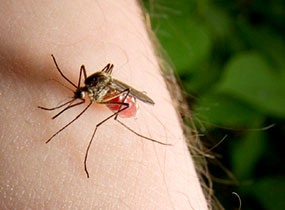 Female mosquitoes have a mouthpart made to pierce skin and siphon
off blood. Males lack this blood-sucking ability because they don't
produce eggs and so have no need for the protein in blood. As a
biting mosquito fills itself with your blood, it injects saliva into
your skin. Proteins in the saliva trigger a mild immune system
reaction that results in the characteristic itching and bump.
Female mosquitoes have a mouthpart made to pierce skin and siphon
off blood. Males lack this blood-sucking ability because they don't
produce eggs and so have no need for the protein in blood. As a
biting mosquito fills itself with your blood, it injects saliva into
your skin. Proteins in the saliva trigger a mild immune system
reaction that results in the characteristic itching and bump.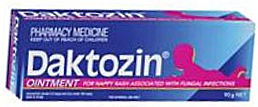
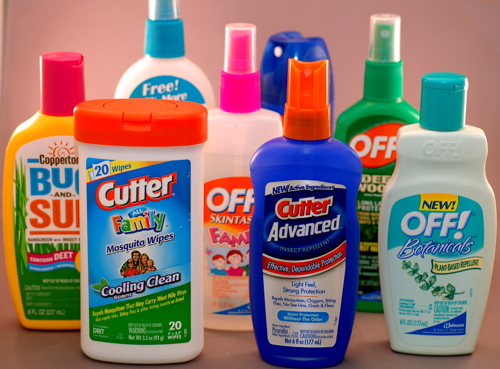
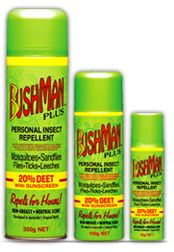 belongings isn't
effective. Don't apply aerosols or pump sprays directly to your
face, spray them onto your hands first and rub on evenly, avoiding
contact with your eyes and mouth.
belongings isn't
effective. Don't apply aerosols or pump sprays directly to your
face, spray them onto your hands first and rub on evenly, avoiding
contact with your eyes and mouth.  messaging, and free voice and video messaging (if Skype to Skype) to
any of your contacts, no matter where they are located. Both video
and voice calls can include 25 people. The advantage of Skype is
that it can be used on all devices, even on many smart televisions.
messaging, and free voice and video messaging (if Skype to Skype) to
any of your contacts, no matter where they are located. Both video
and voice calls can include 25 people. The advantage of Skype is
that it can be used on all devices, even on many smart televisions.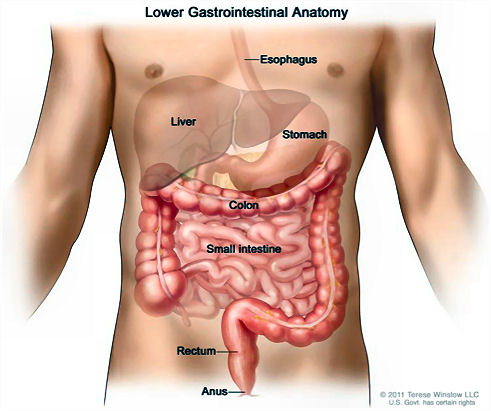 colonoscopy. However, some alternative medicine practitioners also
offer colon cleansing for other purposes, such as detoxification.
colonoscopy. However, some alternative medicine practitioners also
offer colon cleansing for other purposes, such as detoxification.